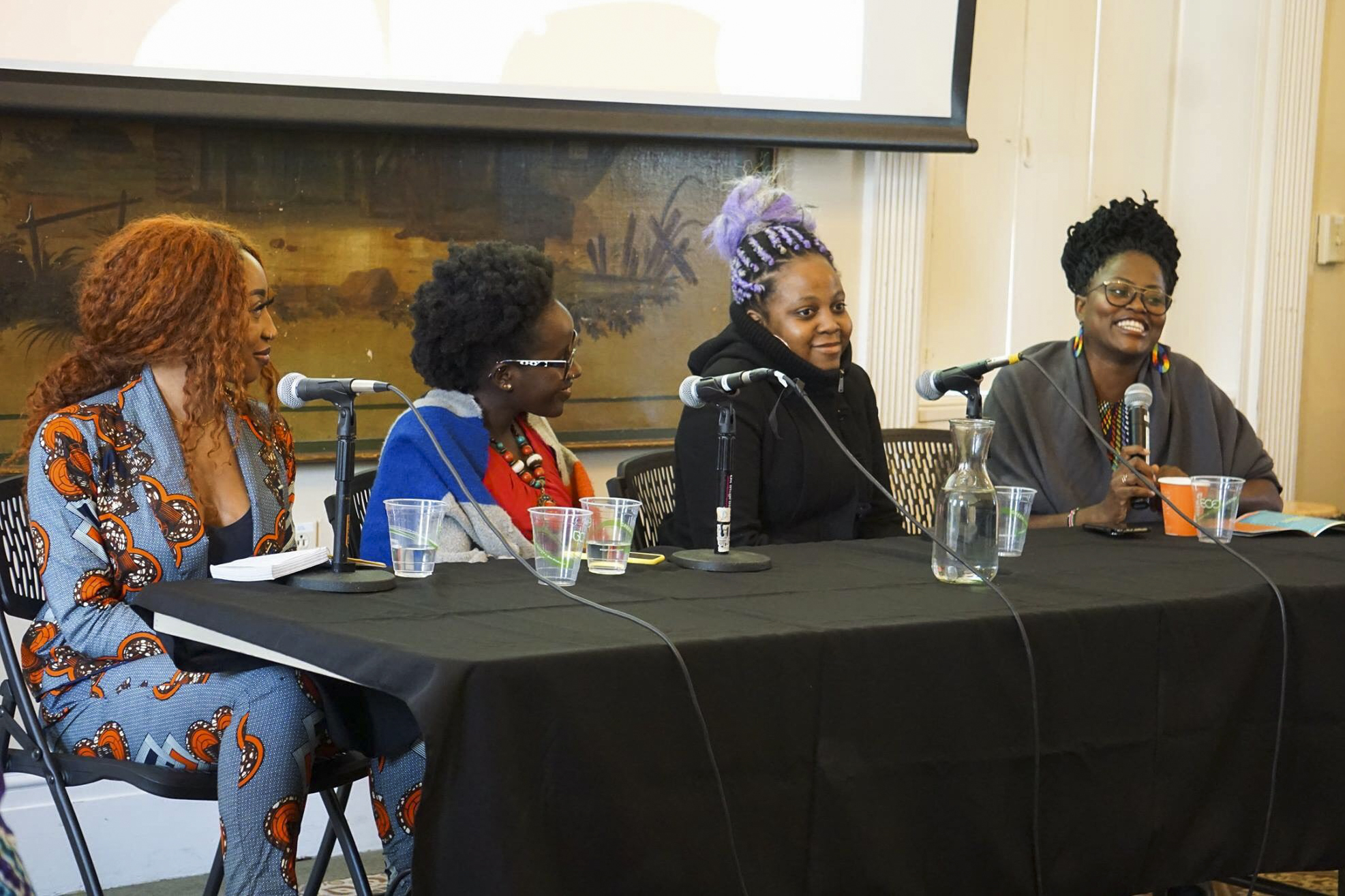
c/o African Student Association
The week before Thanksgiving Break, Wesleyan’s African Student Association (ASA) held a series of events for Africa Week 2018 including a film screening, a Late Night food sale at Ubuntu House, the Second Annual Indaba Conference, and the popular Ariya cultural showcase.
Kicking off the series of events was a screening of the film “I am Not a Witch” from Zambian-Welsh director Rungano Nyoni on Tuesday, Nov. 13. On Thursday night, a Late Night food sale was held at Ubuntu House on Lawn Avenue featuring home-cooked cuisine from all over the African continent.
This year’s Ariya was another success, held Saturday night in Crowell Concert Hall. The event featured a showcase of dance, music, spoken-word poetry, and fashion.
The Argus spoke to Ferdinand Quayson ’20, head of Public Relations for the ASA. Quayson is the accomplished founder of Young Achievers Foundation in Ghana, which he started in 2016 to aid Northern Ghanaians in getting access to higher education. When asked about the planning process for this year’s Africa Week, Quayson shared that the ASA recognized the popularity of the Ariya showcase and wanted to hold an entire week to celebrate African culture.
“[We] felt that we need more than just a day to showcase what Africa has to offer,” he wrote in a message to The Argus. “We believed that this will create a broad range of platforms for students here at Wesleyan and other surrounding schools to meet and explore various issues surrounding the continent.”
He sees Africa Week as the perfect way for the ASA to make itself known to the Wesleyan community, allowing members to share their cultures and backgrounds.
“Being a small group on campus, we see Africa Week as a means to share our culture, views, and ideas with the rest of the Wesleyan community,” he wrote. “Wesleyan is a school which prides itself for its cultural diversity. As such, having the Africa Week adds to that rich ideological and cultural environment that exists here at Wesleyan.”
The most informative event of the week was the ASA’s second annual Indaba Conference held at Russell House on Saturday morning. Quayson described how they selected the panelists in line with the theme of this year’s event: African changemakers.
“The speakers that were selected this year embodied the theme of the conference,” he said. “Some of the panelists were individuals using arts to change perceptions about LGBTQ [individuals] in Africa. Others were using poetry to highlight issues such as racism, migrant rights, human trafficking, and sexual assault. If Africa is to progress, we need individuals with creative ways of solving some of the continent’s entrenched social and economic issues. As such, our panelists this year were chosen for their unique approach to dealing with the issues our continent faces.”
The conference consisted of three panels: Africans in STEM, African Women Change Makers, and Social Entrepreneurship and Social Activism in Africa.
Africans in STEM featured speakers Stacy Uchendu ’17, an alumna currently doing biochemistry research at Yale, and Ariana Pather, a South Africa native working towards her masters of public health at Brown and conducting research on HIV in her home country. The pair discussed the varied and rich experience of Africans in STEM fields but broadened their conversation to the future, particularly STEM developments in Africa and the advancement of Africans working in STEM fields.
Pather explained the value of having African natives doing research that directly affects the continent.
“Coming from a country and having your parents come from there, and growing up in a place and being linked to it through family makes you a far greater expert of that place than merely studying it,” she said. “I knew I had something to offer the field.”
The African Women Change Makers panel featured the following panelists: Catherine Labiran, a master’s student of African Studies at Yale, published poet, and human rights advocate; artist bay b. Bop, a Zimbabwean-South-African Columbia student and founder of Thou Shalt Not Art Collective; and Faith Chumo, an activist, current Yale student, and vice president of Yale’s African Student Association. The women passionately discussed their fields of activism in Africa, as well as the controversies and nuances of volunteerism in Africa. They also emphasized the power that sisterhood and mentorship can give to ambitious young women of color. bay b. Bop offered a powerful statement on growing female African leadership.
“While I think it’s important to consider whether African countries are ready to engage in women in leadership,” she said. “What I find beautiful about the world we’re living in now is [women] are coming regardless…and are being incredibly disruptive in the best possible ways. I think that even that work in itself will force our various and respective countries to acknowledge the systems that were just never meant to allow certain people to exist within them…and then we can talk about dismantling these systems and why these systems exist.”
The Social Entrepreneurship and Social Activism in Africa panel featured Toto Kisaku, a successful Congolese playwright who examines the use of artistic activities in impoverished and oppressed African communities; Quayson, whose previously mentioned Young Achievers Foundation has been educating Ghanian high school seniors on scholarship opportunities and higher education possibilities; and Ibrahima Amadou Niang, a Yale Greenberg World Fellow from Senegal, head of the Open Society Initiative for West Africa Guinea country office, and a creative activist. All founders of their own social initiatives in Africa, panelists discussed the work required to practice productive activism in the current political and social climates on the continent.
Meredith Olin can be reached at molin@wesleyan.edu.